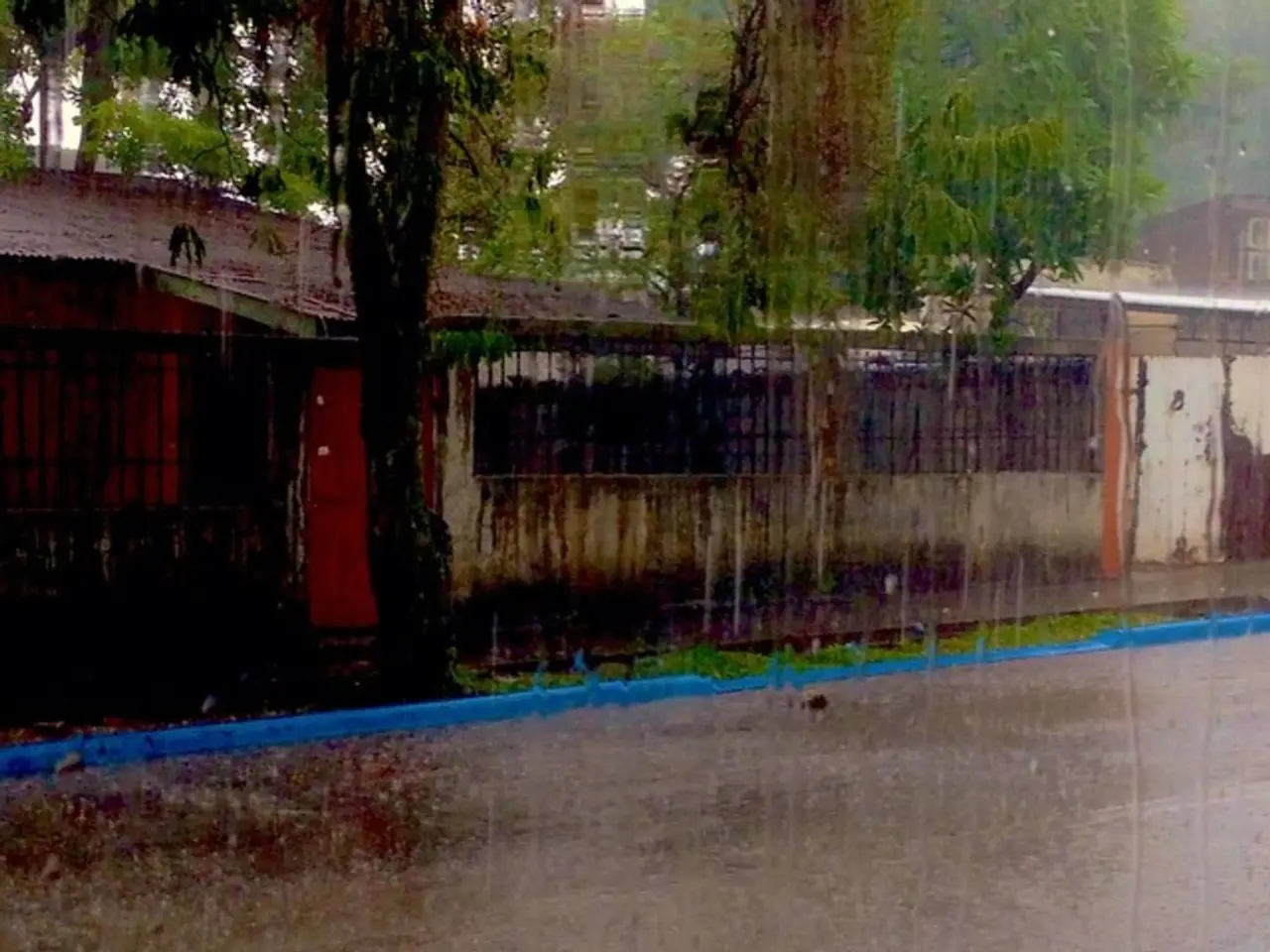A difficult predicament unfolded in a crucial region of Buenos Aires' province, as a storm front brought sizable buildups and significant effects.
In the heart of Argentina's agricultural hub, the province of Buenos Aires, a significant portion of its centre-west region is currently battling floods and floodwaters. Approximately 700,000 hectares have been affected, with ten districts feeling the brunt of the weather's wrath, particularly 9 de Julio and Pehuajó.
The countryside is submerged in mud due to the relentless rains, which have also disrupted everyday life in the affected areas. The scenario is shrouded in uncertainty as weather fronts continue to cross the region, potentially bringing more precipitation to central and southern Buenos Aires.
The rains, recorded over the last 48 hours, have deepened the impact on productive regions. Some areas have experienced record-breaking rainfall, with values doubled and quintupled the normal monthly averages. For instance, Rosario recorded 102 millimeters, with 76 of them falling in the last day's rains. Baradero accumulated 156 millimeters, with 70 of them in a single day, while Chacabuco reached 146 and Pergamino 126.
Despite the challenging conditions, the rains have kept the wheat in an optimal state in the main agricultural zone. The abundance of water ensures optimal reserves for wheat and the next planting of coarse grains. Moreover, the records of rainfall in some areas have oscillated between 120 millimeters and 70 mm, far exceeding the annual average.
The main immediate impact of the rains will be sanitary, creating conditions favourable for the proliferation of diseases in wheat crops. However, it's denied that the corn smut affects wheat.
The countryside's need for rest in the rainfall regime is crucial to prevent negative effects on crops. Currently, around 40% of the district's surface has excess water in the soil, which generates widespread flooding and leaves many fields isolated.
Looking ahead, there's a projected strong increase in the area of corn planting, and the 2025 campaign could potentially have one of the highest production records in history. The rains have kept the soil fertile, ensuring a prosperous future for agriculture in the province of Buenos Aires.
Read also:
- Amidst India's escalating climate crisis, transgender individuals continue to persevere
- Germany's three-month tenure under Merz's administration feels significantly extended
- Governing body allegedly persists in enjoying vacation time amidst Spain's highest danger level due to fires, claims Feijóo
- United Nations Human Rights Evaluation, Session 45: United Kingdom's Statement Regarding Mauritius' Human Rights Record








